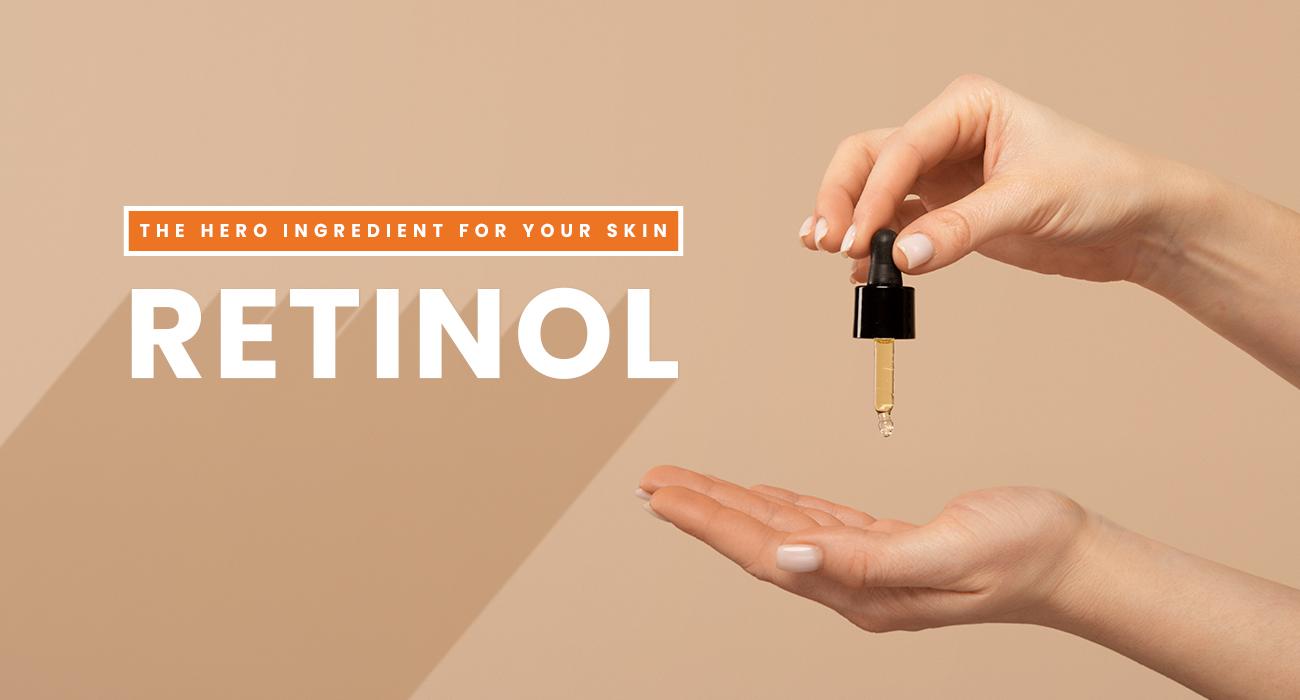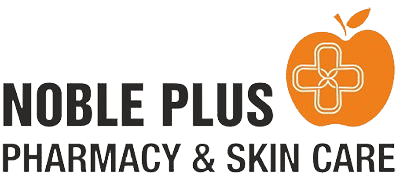
Retinol is a form of vitamin A, it is often used topically in various skincare products. It is known for its ability to promote skin renewal and improve the appearance of fine lines, wrinkles, and uneven skin tone. Retinol works by encouraging the turnover of skin cells and stimulating the production of new, healthier skin cells. This process can help improve the texture and overall look of the skin.
Retinol, a topical treatment, is designed to be applied directly onto the skin. It is available in various formulations such as creams, gels, lotions, ointments, and serums. Additionally, retinol is occasionally incorporated as an ingredient in cosmetic products.
Here are several benefits:
1. Clears Acne:
Retinol helps unclog pores by increasing cell turnover and preventing the buildup of dead skin cells. This can reduce the occurrence of pimples, blackheads, and other blemishes.
It also has anti-inflammatory properties, which can help soothe and calm existing acne.
2. Reduces Fine Lines and Wrinkles:
Retinol stimulates the production of collagen and elastin, two proteins that give skin its strength and elasticity. This can help reduce the appearance of fine lines and wrinkles, leaving your skin looking firmer and younger.
Retinol also promotes the production of hyaluronic acid, which helps keep the skin hydrated and plump.
3. Fades Hyperpigmentation:
Retinol can help fade dark spots and hyperpigmentation caused by acne, sun damage, or other factors.
It works by inhibiting the production of melanin, the pigment that gives skin its color.
4. Reduces Pore Size:
Retinol can help shrink the appearance of enlarged pores by thickening the skin and preventing the buildup of dead skin cells.
This can give your skin a smoother, more even texture.
5. Improves Skin Texture:
Retinol promotes cell turnover, which helps to exfoliate the skin and remove dead skin cells. This can leave your skin feeling smoother and softer.
It can also help to improve the appearance of scars and other skin imperfections.
6. Protects against Sun Damage:
Retinol has antioxidant properties that can help protect the skin from damage caused by free radicals and UV radiation.
This can help to prevent the development of premature wrinkles and other signs of aging.
How to use Retinol:
1. Cleanse your face with a gentle cleanser.
Use a gentle cleanser that is formulated for your skin type. Avoid using harsh scrubs or soaps, as these can irritate your skin.
Pat your face dry with a clean towel.
2. Apply a pea-sized amount of retinol to your face and neck.
Start with a pea-sized amount of retinol and apply it evenly to your face and neck, avoiding the sensitive areas around your eyes and lips.
You can use your fingertips or a cotton pad to apply the retinol.
3. Apply a moisturizer.
Once the retinol has dried, apply a moisturizer to your face and neck.
Make sure to use a moisturizer that is non-comedogenic, meaning it will not clog your pores.
4. Use sunscreen every day.
Retinol can make your skin more sensitive to the sun, so it's important to use sunscreen with SPF 30 or higher every day, even on cloudy days.
Apply sunscreen to your face and neck 15 minutes before going outside.
Here are some additional tips for using retinol:
Start slowly- Apply retinol every other night for the first two weeks, and then gradually increase to nightly use as your skin tolerates it.
Be patient- It takes time to see the full results of retinol use. Most people start to see results after 4-6 weeks.
If you experience any side effects, such as dryness, irritation, or peeling, reduce the frequency of use or stop using the product altogether.
Choosing the right retinol product can be daunting, as there are many different options available.
Here are some factors to consider when choosing a retinol product:
1. Your Skin Type:
Sensitive Skin: If you have sensitive skin, start with a low-concentration retinol product, such as 0.01% or 0.03%. Look for products formulated with soothing ingredients, such as hyaluronic acid or niacinamide.
Dry Skin: If you have dry skin, choose a retinol product that is also moisturizing. Look for products that contain hyaluronic acid, shea butter, or ceramides.
Oily Skin: If you have oily skin, you can tolerate a higher-concentration retinol product, such as 0.5% or 1%. Look for products that are oil-free and non-comedogenic, meaning they will not clog your pores.
Combination Skin: If you have combination skin, you may need to use different retinol products in different areas of your face. For example, you may use a lower-concentration retinol product on your dry cheeks and a higher-concentration retinol product on your oily T-zone.
2. Your Skin Concerns:
Acne: If you are using retinol to treat acne, look for a product that contains additional ingredients that are known to be effective against acne, such as benzoyl peroxide or salicylic acid.
Wrinkles: If you are using retinol to treat wrinkles, look for a product that contains a high-concentration retinol (0.5% or 1%) and other anti-aging ingredients, such as peptides or antioxidants.
Hyperpigmentation: If you are using retinol to treat hyperpigmentation, look for a product that contains high-concentration retinol and ingredients that help brighten the skin, such as vitamin C or licorice root extract.
3. The Formulation:
Retinol: The most common form of retinol is encapsulated retinol, which is a more stable and less irritating form of retinol.
Retinol Esters: Retinol esters are a less potent form of retinol, but they can be a good option for people with sensitive skin.
Retinaldehyde: Retinaldehyde is a more potent form of retinol than retinol, but it is also more irritating.
Retinol Serum: Serums are typically lightweight and fast-absorbing, making them a good option for oily skin.
Retinol Cream: Creams are thicker and more moisturizing, making them a good option for dry skin.
Talk to your doctor or dermatologist if you have any questions or concerns about using retinol.
(Disclaimer: The information provided in this post is for informational purposes only and should not be considered professional advice. It is not intended to diagnose, treat, cure, or prevent any disease. Always consult with a qualified healthcare or skincare professional for personalized guidance, and consider individual circumstances before making any decisions based on the information presented in this post.)
References:

 Upload Prescription
Upload Prescription